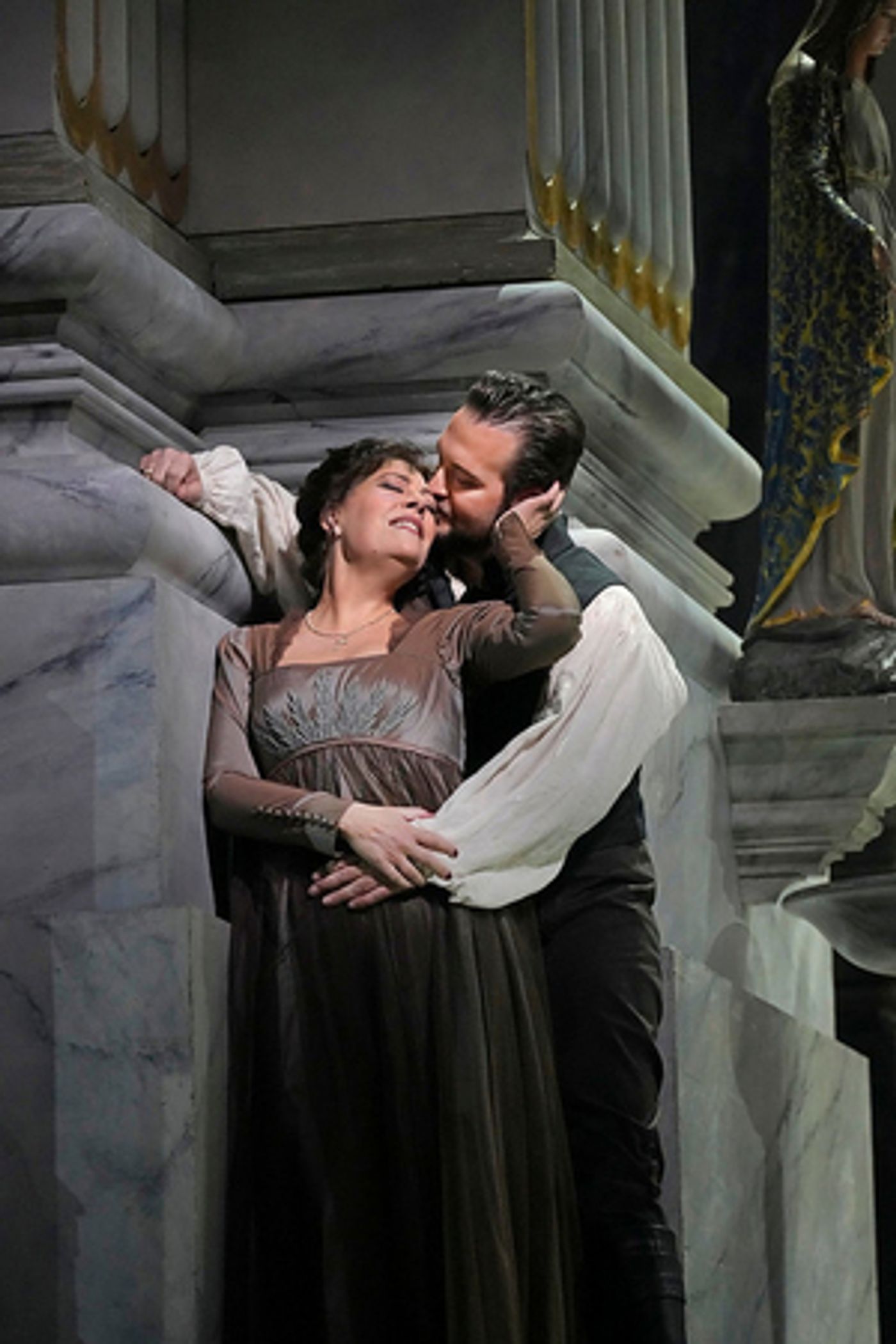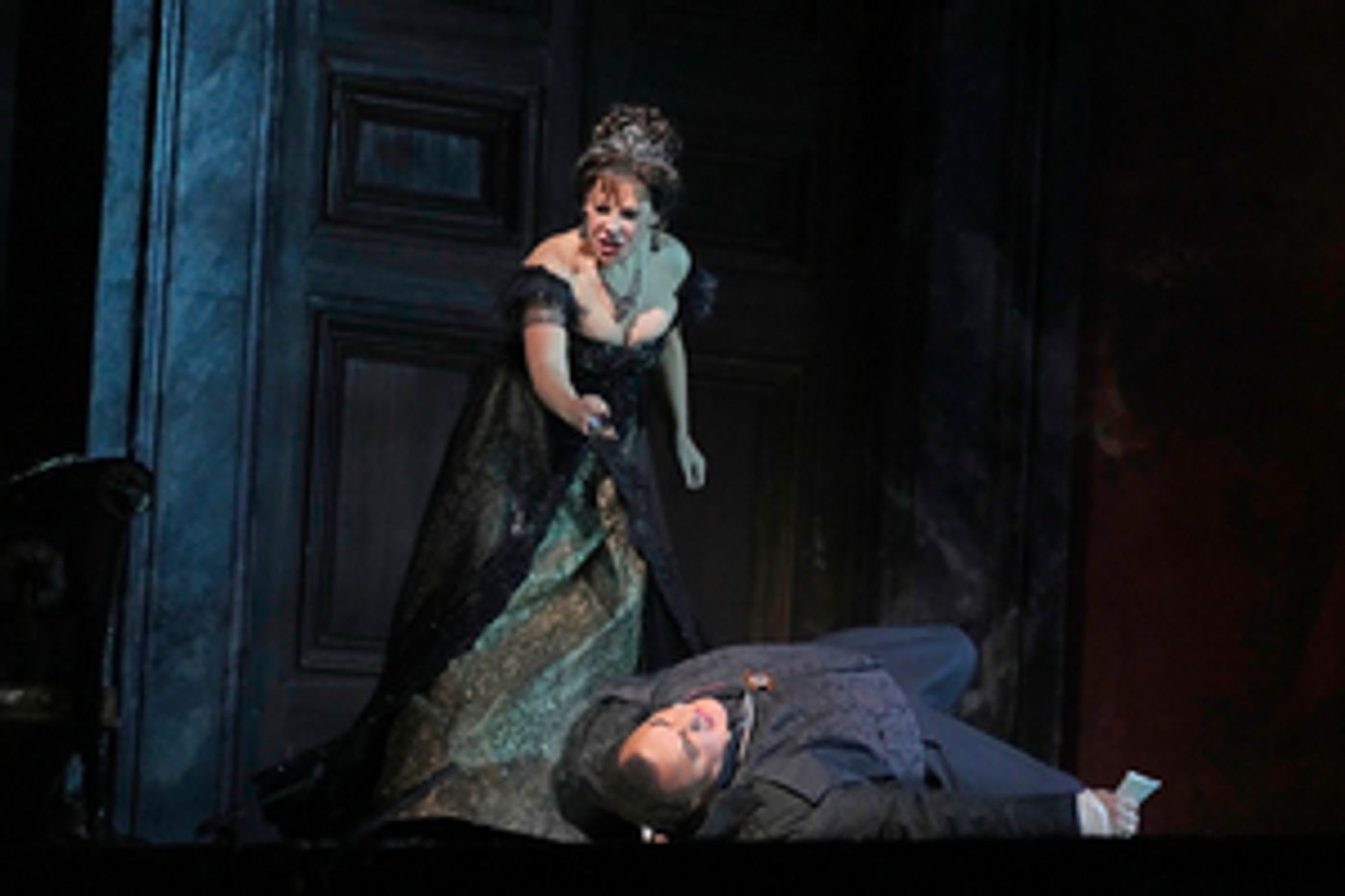Review: Radvanovsky's TOSCA a Winner for the Met
Co-stars Jagde and Gagnitze fill out the trio for this intimate yet “grand” opera

Photo: Ken Howard/Met Opera
What is there to say about Puccini's TOSCA that hasn't been said in the last hundred-plus years since its premiere in Rome (to echo the locations in the opera)?
It is a marvel of brevity, with librettists Giacosa and Illica (who also did MADAMA BUTTERFLY and LA BOHEME) shaving locations, characters and action from the original play, written by the French dramatist Victorien Sardou for the legendary actress Sarah Bernhardt, without sacrificing its impact.
It has a gorgeous score, three marvelous roles (for soprano, tenor and baritone) that even less-than-star performers can embrace and a trio of real locales that even the most misbegotten of directors can't ruin (though many have tried).
For a grand opera, it is also quite intimate, with the action mainly revolving around three characters who carry their emotions on their sleeves and interact like their lives depend on it. (And, of course, they do.)
In the hands of an impressive singing actress like Sondra Radvanovsky--who just finished her brief run in the title role (though others will follow her through March)--it can be a thrilling experience. At once regal, inordinately jealous and pitiful when called for, she gave us a first-rate Tosca to remember. When she commits suicide by jumping from the parapet of Castel Sant'Angelo, you never doubt her commitment for a moment--nor when she sang her great aria, "Vissi d'arte" ("I've lived for art").
Her lover, the artist Mario Cavaradossi, was sung by the tenor Brian Jagde, who started out his opera life as a baritone. He has a big voice, a good stage manner and is a convincing actor. If I missed a little elegance in his reading of the role--notably in his two arias, "Recondita armonia" and "E lucevan le stelle"--I expect that he will grow into it.

Photo: Ken Howard/Met Opera
Once he warmed up, baritone George Gagnitze was a model of the oily, repulsive chief of police, Baron Scarpia, who would go to any length in torturing the artist for the information he needed and have no qualms about forcing himself on Tosca. His second act sparring match with her--which ends in his death--was as exciting to watch as hear, in "Già, mi dicon venal" ("Yes, they say I am unscrupulous").
In the smaller roles, bass-baritone Patrick Carfizzi, with his smooth voice and great comic timing, seemed almost luxury casting as the sacristan in Sant'Andrea della Valle, the church where the opera begins, while Kevin Short, another bass-baritone, stood out as the political refugee Angelottti. Mila diPolo was a sweet-voiced soprano shepherd boy.
Under the baton of the Met's music director, Yannick Nezet-Seguin, the orchestra helped bring out the best in the performers, while the chorus under Donald Palumbo filled the stage with sound when needed, as in the first act's "Te Deum." Gina Lapinski did a fine job in bringing John McVicar's original staging to life, though the sets by John Macfarlane, with its lighting by David Finn, still look like "Zeffirelli lite."
For more information on future casting and performance dates for TOSCA, see the Met's website.
Reader Reviews
Videos

